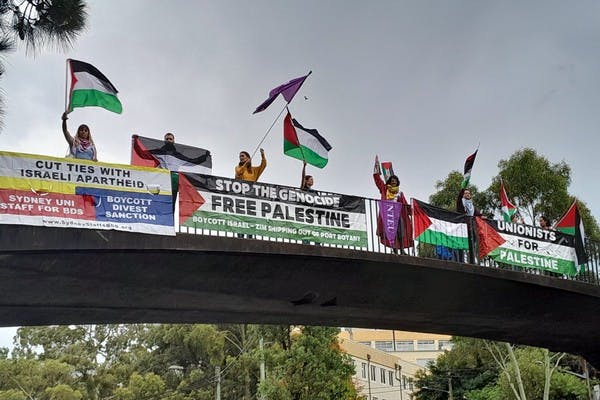Published: 21 May 2019
Last updated: 4 March 2024
Since his days at the ACTU, Hawke had fostered contacts with Jewish leadership in Sydney and Melbourne. His many trips to Israel and his association with the country’s trade union movement, the Histadrut, compelled him to deep concern about the affairs of the Jewish state. Hawke, like many social democrats at the time was impressed with Israel’s socialist principles. Many still saw the kibbutzim as viable projects in democratic socialism. Hawke, as a union leader, was impressed by the power of the Histadrut and its clout over policy and government. The Labour Party had been governing the country since 1948, and to Hawke, Israel was a workers’ paradise.
Since his first trip to Israel in 1971, Hawke became concerned with the fate of Soviet Jews. Many Jews within the Soviet Union hoped to emigrate to Israel. Communist authorities refused them exit visas, and many faced persecution. After a conversation with then Israeli prime minister Golda Meir, Hawke agreed to confront the Soviets about it. Soon after, he flew to Russia and had a tense conversation with Soviet trade union leader Alexander Shelepin. The Soviets allowed a number of Jews to leave soon after the talks. In 1987, when he was prime minister, he met Mikhail Gorbachev, apparently convincing him to finally lift the ban for good.
The very beginning of Hawke’s history with Israel was defined by internal rancour within the ALP. Hawke was pressed to go to Israel in 1971 because many (but not all) within the Jewish community felt unease about Labor’s attitudes under Whitlam. The party had moved to a policy of “even handedness” after the 1967 war. Israel’s conflict with its neighbours and its occupation of Palestinian Territories, in time, came to reshape many of Hawke’s preconceptions.
When in government, Whitlam was very critical of Israel’s targeted assassinations of Black September after the Munich massacres. He was also supportive of international recognition of the Palestinian national cause. Hawke passionately opposed the new shift. In a television interview at the time he came close to tears confronting Labor’s position. When he was elected prime minister in 1983 much has changed in Israeli politics. This eventuated in a repositioning of his own.
In 1987, Hawke went to the Middle East. On this trip he had planned to play intermediary between the Arab world and Israel. He met Egyptian and Jordanian leaders and was impressed with their moderation to the West and their willingness to deal with Israel. In Jordan he met the leadership of the Palestinian Liberation Organisation which was then stationed there. He again was impressed with their moderation and their inclination to accept Israel’s existence. His trip to Israel heralded a very different reception.
In Israel, Hawke was struck by the country’s rightward drift. Since 1977, the revisionist Likud had led Israel. First Menachem Begin and then Yitzhak Shamir oversaw a hardened foreign policy. Settlements in the West Bank and Gaza were greatly expanded with the help of underground religious group Gush Emunim. In 1982 Israel invaded Lebanon in a bid to destroy the PLO and wipe out the Palestinian national cause. Hawke’s meeting with Shamir was reportedly the tensest of the trip. Shamir refused any kind of reduction in the state’s hold over Palestinian land.
Hawke returned to Australia deeply unsettled. The trip entirely changed his view.. A year later, at an event in Melbourne celebrating the successful Refusnik campaign, he likened the Palestinian national struggle to Soviet Jews and the fight against Apartheid. After such intense debate in the previous decade, Hawke had come to realise hard truths about Israel’s hold over Palestine.
His u-turn was upsetting to many, but it represented another kind of duality. Since the 1970s he had been close to Jewish Australia. He appreciated their culture, vibrancy, and dedication to community life. He was proud that Jews called Australia home after 1945. Israel’s occupation did not dull his commitment to this, but it did open his eyes to the struggle of another people, and its oppression by a solipsistic state.
Photo: Australian prime minister Bob Hawke and Israel’s prime minister Yitzhak Shamir in Israel, 1987.




